Glucose
How to submit an article:
- Registered users can submit any published journal article that has a unique DOI (Digital Object Identifier) name or link to Research Hub.
- For example, you can paste the full DOI link:
https://doi.org/10.1109/5.771073or just the DOI name:10.1109/5.771073into the field above and click submit. - The person who is first to submit a valid article to Research Hub will forever be credited for it, and every article submission earns you +6 Research Points.
Related Topics
Published research studies are articles that present the findings of original research that has undergone a peer-review process and has been made publicly available in scholarly journals, books or other media.
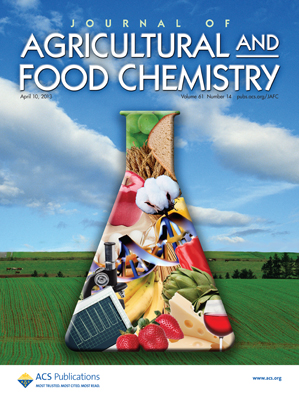
Immunomodulatory Acidic Polysaccharide from Jujube Fruit (Zizyphus jujuba Mill.): Insight into Their Chemical Characteristics and Modes of Action
2024 Dec 20 Journal of Agricultural and Food Chemistry Feng L, Ju M, Ma C, Li K, Cai S
Experimental Study Animal Study JujubeThe ZJMP-2 polysaccharide fraction from jujube, consisting of various sugars and acid, significantly enhances immune cell activity and stimulates lymphocyte proliferation.
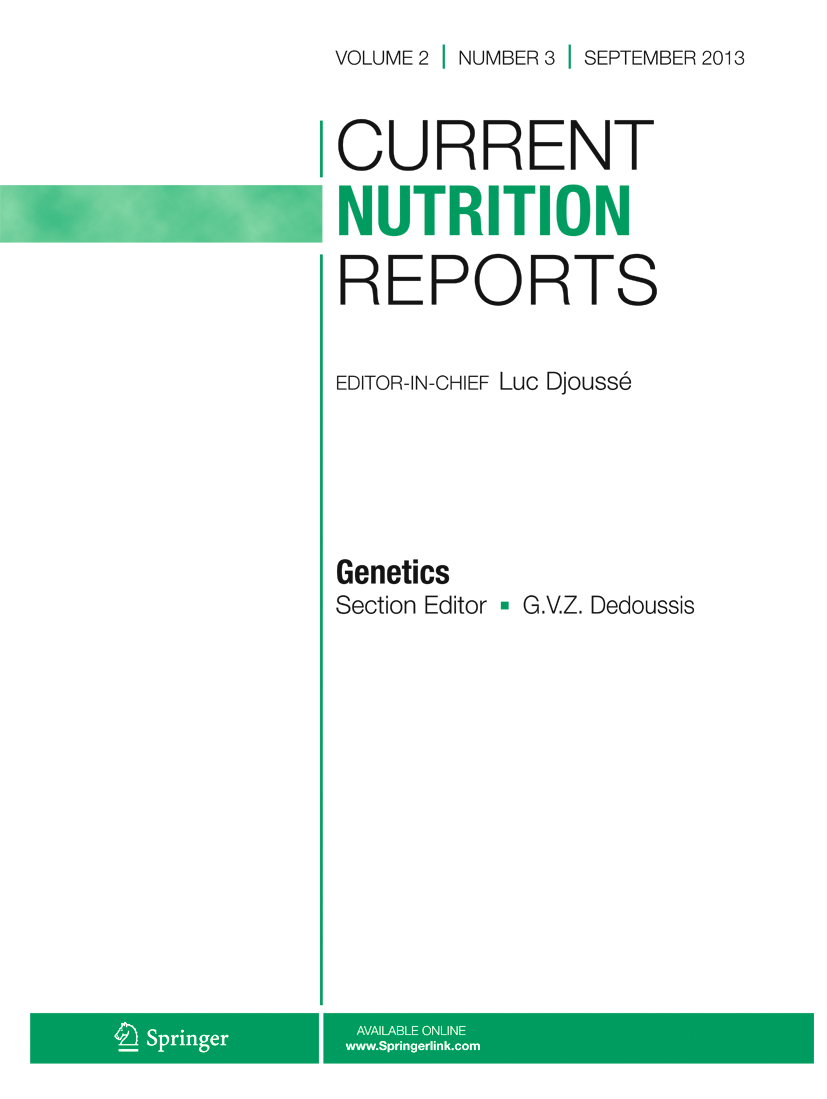
Ziziphus jujuba (Jujube) in Metabolic Syndrome: From Traditional Medicine to Scientific Validation
2024 Oct 01 Current Nutrition Reports Ghasemzadeh Rahbardar M, Fazeli Kakhki H, Hosseinzadeh H
Review Article Obesity Type 2 Diabetes Metabolic Syndrome High Blood Pressure JujubeZiziphus jujuba and its main components, lupeol and betulinic acid, show promise in treating complications of metabolic syndrome, including diabetes, obesity, and hypertension.
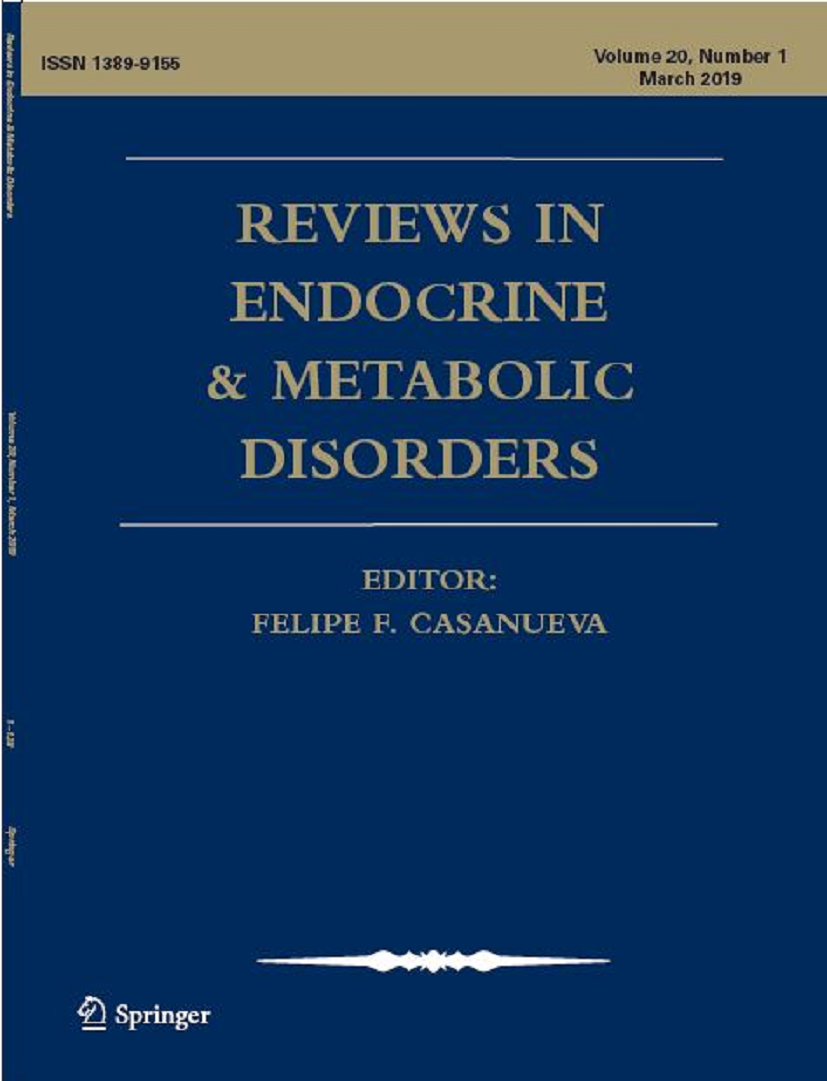
Circadian alignment of food intake and glycaemic control by time-restricted eating: A systematic review and meta-analysis
2023 Nov 22 Reviews in Endocrine and Metabolic Disorders Rovira-Llopis S, Luna-Marco C, Perea-Galera L, Bañuls C, Morillas C, Victor VM
Time-restricted eating (TRE) demonstrated no significant effect on fasting glucose overall, but it did reduce HbA1c levels and fasting insulin, with a tendency to decrease HOMA-IR. The timing of food intake was identified as a crucial factor, with early TRE (eTRE) significantly reducing fasting glucose levels in subjects with overweight or obesity.
Systematic Review Meta-Analysis Intermittent Fasting Circadian Rhythm Blood Sugar Glycaemic Control
Effects of an Unripe Avocado Extract on Glycaemic Control in Individuals with Obesity: A Double-Blinded, Parallel, Randomised Clinical Trial
2023 Nov 17 Nutrients Zhao L, Ingram DK, Gumpricht E, De Paoli T, Teong XT, Liu B, et al.
Randomised Controlled Trial Glucose Blood Sugar AvocadoConsumption of unripe avocado extract in the diet may lower postprandial insulin levels in overweight adults with previously elevated insulin levels.
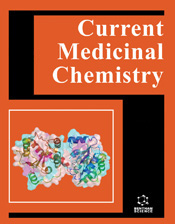
The Effects of Apple Cider Vinegar on Cardiometabolic Risk Factors: A Systematic Review and Meta-analysis of Clinical Trials
2023 Oct 11 Current Medicinal Chemistry Dadkhah Tehrani S, Keshani M, Rouhani MH, Moallem SA, Bagherniya M, Sahebkar A
Systematic Review Meta-Analysis Apple Cider Vinegar Blood Sugar Cholesterol HbA1CConsumption of apple cider vinegar significantly improves certain risk factors for cardiometabolic syndrome, notably fasting blood glucose, glycosylated hemoglobin, and total cholesterol.
Research insights are moderated by the Research Hub team and offer an at-a-glance overview of interesting research findings.

2024 Journal of Agricultural and Food Chemistry
The ZJMP-2 polysaccharide fraction from jujube, consisting of various sugars and acid, significantly enhances immune cell activity and stimulates lymphocyte proliferation.
Experimental Study Jujube
Immunomodulatory Acidic Polysaccharide from Jujube Fruit (Zizyphus jujuba Mill.): Insight into Their Chemical Characteristics and Modes of Action
Feng L, Ju M, Ma C, Li K, Cai S

2024 Current Nutrition Reports
Ziziphus jujuba and its main components, lupeol and betulinic acid, show promise in treating complications of metabolic syndrome, including diabetes, obesity, and hypertension.
Review Article High Blood Pressure Jujube Metabolic Syndrome Obesity Type 2 Diabetes
Ziziphus jujuba (Jujube) in Metabolic Syndrome: From Traditional Medicine to Scientific Validation
Ghasemzadeh Rahbardar M, Fazeli Kakhki H, Hosseinzadeh H

2023 Nutrients
Consumption of unripe avocado extract in the diet may lower postprandial insulin levels in overweight adults with previously elevated insulin levels.
Randomised Controlled Trial Avocado Blood Sugar
Effects of an Unripe Avocado Extract on Glycaemic Control in Individuals with Obesity: A Double-Blinded, Parallel, Randomised Clinical Trial
Zhao L, Ingram DK, Gumpricht E, De Paoli T, Teong XT, Liu B, et al.

2023 Current Medicinal Chemistry
Consumption of apple cider vinegar significantly improves certain risk factors for cardiometabolic syndrome, notably fasting blood glucose, glycosylated hemoglobin, and total cholesterol.
Systematic Review Apple Cider Vinegar Blood Sugar Cholesterol HbA1C
The Effects of Apple Cider Vinegar on Cardiometabolic Risk Factors:
A Systematic Review and Meta-analysis of Clinical Trials
Dadkhah Tehrani S, Keshani M, Rouhani MH, Moallem SA, Bagherniya M, Sahebkar A
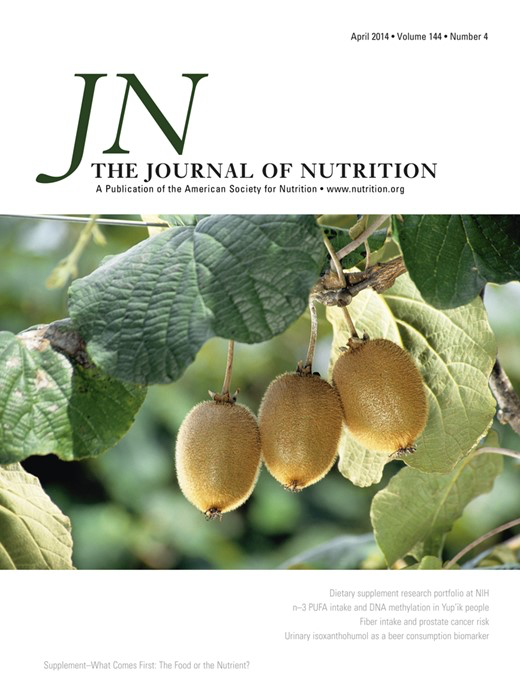
2023 The Journal of Nutrition
Avocado consumption is linked to better glucose regulation, with metabolomic biomarkers of avocado intake showing even stronger associations with lower glycemia.
Cohort Study Blood Sugar
Associations between Metabolomic Biomarkers of Avocado Intake and Glycemia in the Multi-Ethnic Study of Atherosclerosis
Wood AC, Goodarzi MO, Senn MK, Gadgil MD, Graca G, Allison MA, et al.
Review Articles
Review articles summarise and critically evaluate the current state of research on a specific topic or field by synthesising multiple primary research studies.

Ziziphus jujuba (Jujube) in Metabolic Syndrome: From Traditional Medicine to Scientific Validation
2024 Oct 01 Current Nutrition Reports Ghasemzadeh Rahbardar M, Fazeli Kakhki H, Hosseinzadeh H
Review Article Obesity Type 2 Diabetes Metabolic Syndrome High Blood Pressure JujubeZiziphus jujuba and its main components, lupeol and betulinic acid, show promise in treating complications of metabolic syndrome, including diabetes, obesity, and hypertension.

Circadian alignment of food intake and glycaemic control by time-restricted eating: A systematic review and meta-analysis
2023 Nov 22 Reviews in Endocrine and Metabolic Disorders Rovira-Llopis S, Luna-Marco C, Perea-Galera L, Bañuls C, Morillas C, Victor VM
Time-restricted eating (TRE) demonstrated no significant effect on fasting glucose overall, but it did reduce HbA1c levels and fasting insulin, with a tendency to decrease HOMA-IR. The timing of food intake was identified as a crucial factor, with early TRE (eTRE) significantly reducing fasting glucose levels in subjects with overweight or obesity.
Systematic Review Meta-Analysis Intermittent Fasting Circadian Rhythm Blood Sugar Glycaemic Control
The Effects of Apple Cider Vinegar on Cardiometabolic Risk Factors: A Systematic Review and Meta-analysis of Clinical Trials
2023 Oct 11 Current Medicinal Chemistry Dadkhah Tehrani S, Keshani M, Rouhani MH, Moallem SA, Bagherniya M, Sahebkar A
Systematic Review Meta-Analysis Apple Cider Vinegar Blood Sugar Cholesterol HbA1CConsumption of apple cider vinegar significantly improves certain risk factors for cardiometabolic syndrome, notably fasting blood glucose, glycosylated hemoglobin, and total cholesterol.

A Comprehensive Review of the Effect of Honey on Human Health
2023 Jul 06 Nutrients Palma-Morales M, Huertas JR, Rodríguez-Pérez C
Review Article Cardiovascular Disease Metabolic Syndrome Wound Healing HoneyHoney intake has observed beneficial effects on various health aspects like cardiovascular, metabolic risk factors, and wound healing, primarily replacing other sweeteners.

Chinese Herbal Medicine for Type 2 Diabetes Mellitus With Nonalcoholic Fatty Liver Disease: A Systematic Review and Meta-Analysis
2022 Jun 27 Frontiers in Pharmacology Peng S, Liu L, Xie Z, Zhang X, Xie C, Ye S, et al.
The CHM in combination with WM seems to be more beneficial in T2DM with NAFLD patients in improving lipid and glucose metabolism, liver function, and insulin resistance as well as improving overall efficiency and reducing body weight.
Systematic Review Meta-Analysis Chinese Herbal MedicineClinical Trials
Clinical trials are research studies that involve people and are conducted to evaluate the safety and efficacy of new treatments or interventions, such as drugs, medical devices, or behavioural therapies.

Effects of an Unripe Avocado Extract on Glycaemic Control in Individuals with Obesity: A Double-Blinded, Parallel, Randomised Clinical Trial
2023 Nov 17 Nutrients Zhao L, Ingram DK, Gumpricht E, De Paoli T, Teong XT, Liu B, et al.
Randomised Controlled Trial Glucose Blood Sugar AvocadoConsumption of unripe avocado extract in the diet may lower postprandial insulin levels in overweight adults with previously elevated insulin levels.
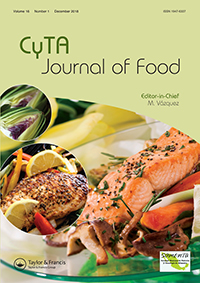
Effect of avocado honey on anthropometric and biochemical parameters in healthy subjects: a pilot randomised controlled trial
2022 Jun 16 CyTA - Journal of Food Hernández Salazar M, Flores A, Ramírez E, Llaca Díaz J, Rodríguez B, Castro H
Randomised Controlled Trial AvocadoAvocado honey, rich in bioactive compounds, can serve as a natural sweetener without negatively impacting anthropometric and biochemical parameters.

Effects of Blueberry Consumption on Cardiovascular Health in Healthy Adults: A Cross-Over Randomised Controlled Trial
2022 Jun 21 Nutrients Wang Y, Gallegos JL, Haskell-Ramsay C, Lodge JK
Randomised Controlled Trial BlueberryBoth whole blueberries and freeze-dried blueberry powder significantly enhanced plasma nitrite levels, a marker of cardiovascular health, but did not significantly affect other cardiovascular risk factors.

Thirty Days of Montmorency Tart Cherry Supplementation Has No Effect on Gut Microbiome Composition, Inflammation, or Glycemic Control in Healthy Adults
2021 Sep 16 Frontiers in Nutrition Hillman AR, Chrismas BCR
No significant alterations in the gut microbiome, and no significant impact of MTC supplementation on inflammation or glucose regulation. These results may partially be due to the use of a healthy population, who did not have inflammatory conditions and thus future work may need to focus on clinical populations.
Randomised Controlled Trial Gut Microbiota Cherry
Laser acupuncture versus oral glucose administration for pain prevention in term neonates: an observer-blinded non-inferiority randomized controlled clinical trial
2021 Jun 04 Acupuncture in Medicine Stadler J, Avian A, Pichler G, Posch K, Urlesberger B, Raith W
Laser acupuncture was not shown to be non-inferior to an oral glucose solution, possibly due to the higher than expected variability in premature infant pain profile (PIPP) scores within the studied groups.
Randomised Controlled TrialStudy Protocols
Published study protocols are detailed plans that outline the objectives, methodology, statistical analyses, and organisation of a research study that have been made publicly available for others to review and use as a reference.
Presentation Slides

Experimental Study
The ZJMP-2 polysaccharide fraction from jujube, consisting of various sugars and acid, significantly enhances immune cell activity and stimulates lymphocyte proliferation.
Feng L, Ju M, Ma C, Li K, Cai S

Review Article
Ziziphus jujuba and its main components, lupeol and betulinic acid, show promise in treating complications of metabolic syndrome, including diabetes, obesity, and hypertension.
Ghasemzadeh Rahbardar M, Fazeli Kakhki H, Hosseinzadeh H

Randomised Controlled Trial
Consumption of unripe avocado extract in the diet may lower postprandial insulin levels in overweight adults with previously elevated insulin levels.
Zhao L, Ingram DK, Gumpricht E, De Paoli T, Teong XT, Liu B, Mori TA, Heilbronn LK, Roth GS

Systematic Review
Consumption of apple cider vinegar significantly improves certain risk factors for cardiometabolic syndrome, notably fasting blood glucose, glycosylated hemoglobin, and total cholesterol.
Dadkhah Tehrani S, Keshani M, Rouhani MH, Moallem SA, Bagherniya M, Sahebkar A

Cohort Study
Avocado consumption is linked to better glucose regulation, with metabolomic biomarkers of avocado intake showing even stronger associations with lower glycemia.
Wood AC, Goodarzi MO, Senn MK, Gadgil MD, Graca G, Allison MA, Tzoulaki I, Mi MY, Greenland P, Ebbels T, Elliott P, Tracy RP, Herrington DM, Rotter JI

Review Article
Honey intake has observed beneficial effects on various health aspects like cardiovascular, metabolic risk factors, and wound healing, primarily replacing other sweeteners.
Palma-Morales M, Huertas JR, Rodríguez-Pérez C
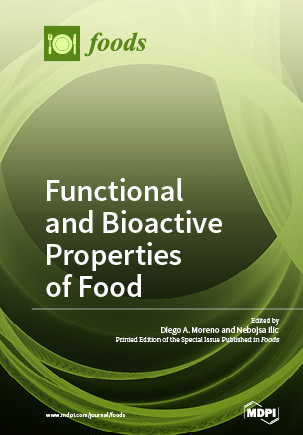
Animal Study
Long-term intake of traditionally made Doenjang, particularly high in certain species, may improve symptoms of estrogen deficiency more effectively than unfermented soybeans.
Zhang T, Yue Y, Jeong SJ, Ryu MS, Wu X, Yang HJ, Li C, Jeong DY, Park S
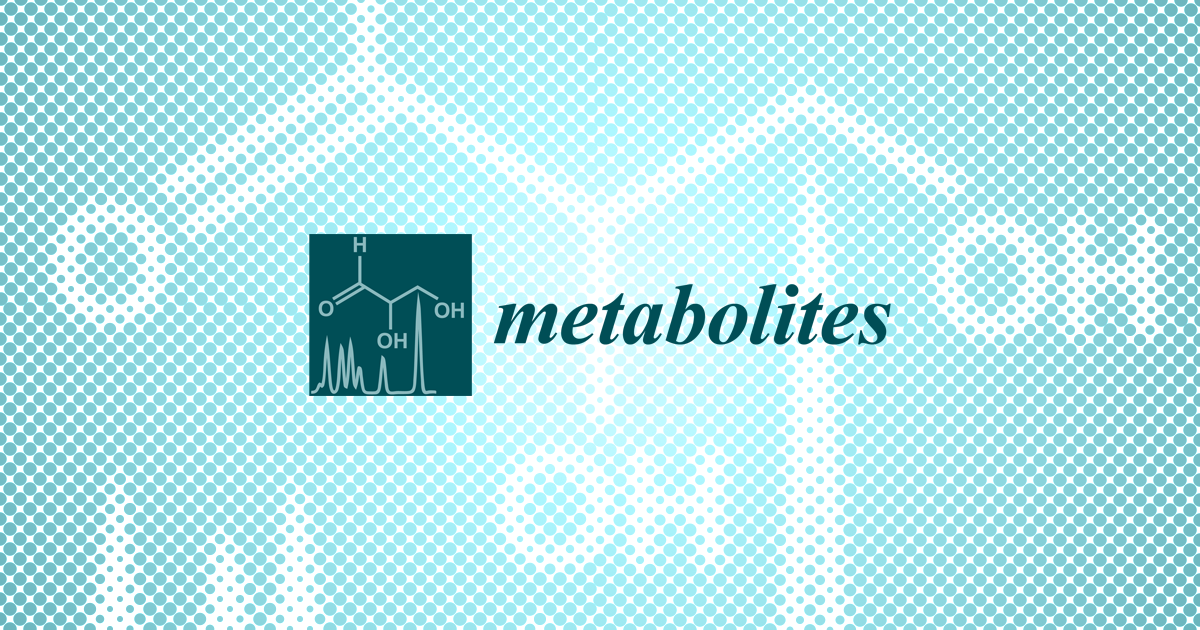
Cohort Study
Frequent consumption of sugar-sweetened coffee can adversely affect blood sugar control in patients with diabetes mellitus in Korea.
Yoo H, Park K

Randomised Controlled Trial
Both whole blueberries and freeze-dried blueberry powder significantly enhanced plasma nitrite levels, a marker of cardiovascular health, but did not significantly affect other cardiovascular risk factors.
Wang Y, Gallegos JL, Haskell-Ramsay C, Lodge JK

Randomised Controlled Trial
Avocado honey, rich in bioactive compounds, can serve as a natural sweetener without negatively impacting anthropometric and biochemical parameters.
Hernández Salazar M, Flores A, Ramírez E, Llaca Díaz J, Rodríguez B, Castro H

Animal Study
Certain natural mineral waters, when combined with a low-calorie diet, effectively reduce cholesterol and glucose levels in mice with metabolic syndrome.
Narciso L, Martinelli A, Torriani F, Frassanito P, Bernardini R, Chiarotti F, Marianelli C
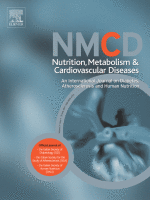
Meta-Analysis
Blueberry and cranberry consumption significantly lowered fasting blood glucose and glycated hemoglobin levels in individuals with diabetes.
Delpino FM, Figueiredo LM, Gonçalves da Silva T, Flores TR

Systematic Review
Consumption of sesame seeds and its products positively influences human glucose metabolism, potentially making it a beneficial addition to glucose-lowering diets.
Sohouli MH, Haghshenas N, Hernández‐Ruiz , Shidfar F

Meta-Analysis
Tea supplements, especially green tea, significantly decrease fasting blood glucose and fasting insulin levels and reduce body weight in women with polycystic ovary syndrome.
Shen W, Pan Y, Jin B, Zhang Z, You T, Qu Y, Han M, Yuan X, Zhang Y

Systematic Review
Cinnamon supplementation may significantly enhance metabolic status in women with polycicstic ovary syndrome, notably improving high-density lipoprotein and insulin sensitivity, and decreasing low-density lipoprotein, triglyceride, and blood glucose levels.
Maleki V, Faghfouri AH, Tabrizi FPF, Moludi J, Saleh-Ghadimi S, Jafari-Vayghan H, Qaisar SA

Animal Study
Adzuki beans, when added to a high-fat diet, lessen obesity, improve liver function, enhance insulin sensitivity, and balance gut microbiota.
Zhao Q, Hou D, Fu Y, Xue Y, Guan X, Shen Q
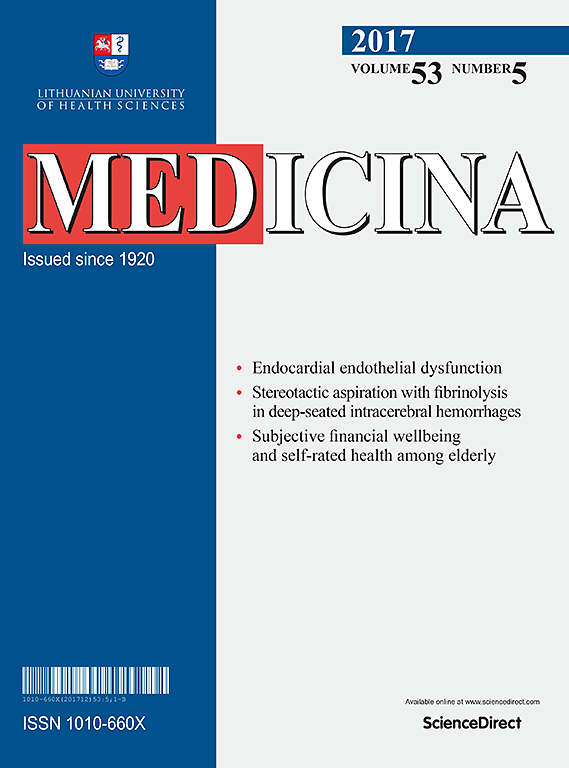
Systematic Review
Coffee extract supplementation significantly improves parameters of metabolic syndrome, with the effects varying according to the types and doses of coffee administered.
Ramli NNS, Alkhaldy AA, Mhd Jalil AM

Systematic Review
Chocolate and cocoa product consumption significantly improved lipid profiles, but had no significant effect on other heath aspects such as cognitive function and blood pressure.
Tan TYC, Lim XY, Yeo JHH, Lee SWH, Lai NM

Systematic Review
Apple cider vinegar intake can significantly decrease total cholesterol and fasting plasma glucose levels contributing to better cardiovascular health among adults.
Hadi A, Pourmasoumi M, Najafgholizadeh A, Clark CCT, Esmaillzadeh A

Systematic Review
The consumption of cocoa or dark chocolate can reduce low-density lipoprotein cholesterol and fasting blood sugar levels in diabetic patients.
Darand M, Hajizadeh Oghaz M, Hadi A, Atefi M, Amani R

Randomised Controlled Trial
Adding oat bran to the diet of pregnant women with gestational diabetes can help significantly reduce their fasting and postprandial blood glucose levels.
Barati Z, Iravani M, Karandish M, Haghighizadeh MH, Masihi S

Systematic Review
Acupuncture could improve body mass index, waist-to-hip ratio as well as insulin resistance (HOMA-IR) in patients with PCOS.
Ruqun Zheng, Peng Qing, Mei Han, Jinlong Song, Min Hu, Hongxia Ma, Juan Li

Cohort Study
Moderate coffee consumption may potentially reduce the risk of low HDL-C and high fasting blood glucose amongst Korean male adults.
Tan LJ, Jeon HJ, Park SH, Kim SA, Lim K, Chung S, Chang PS, Lee J, Kang D, Shin S
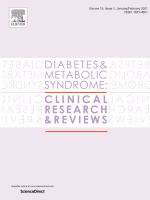
Systematic Review
The supplementary intake of green tea does not significantly affect blood glucose, fasting insulin, hemoglobin A1c, and insulin resistance in patients with type 2 diabetes mellitus.
Asbaghi O, Fouladvand F, Gonzalez MJ, Ashtary-Larky D, Choghakhori R, Abbasnezhad A
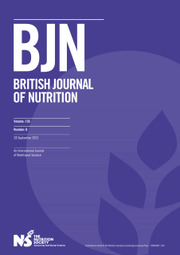
Systematic Review
Consuming walnuts does not significantly alter blood glucose levels, indicating cardiovascular protective effects of walnuts are not due to improved glycaemic control.
Neale, E., Guan, V., Tapsell, L., & Probst, Y.
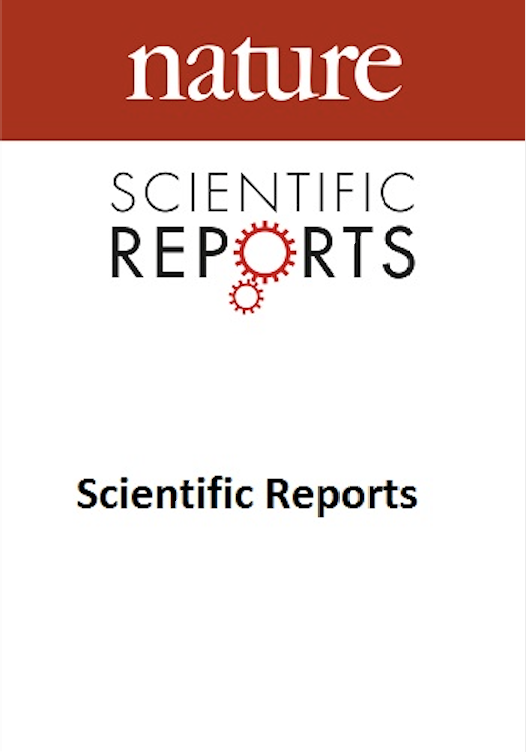
Experimental Study
Mu Dan Pi (MDP) and its water extract may serve as potential treatment options for inflammatory bowel disease.
Chen TF, Hsu JT, Wu KC, Hsiao CF, Lin JA, Cheng YH, Liu YH, Lee DY, Chang HH, Cho DY, Hsu JL
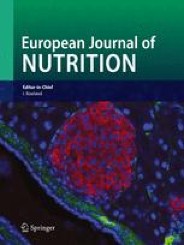
Clinical Study
Montmorency tart cherry juice can significantly improve blood pressure, fasting glucose, cholesterol rates and respiratory exchange ratio in those with metabolic syndrome.
Desai T, Roberts M, Bottoms L
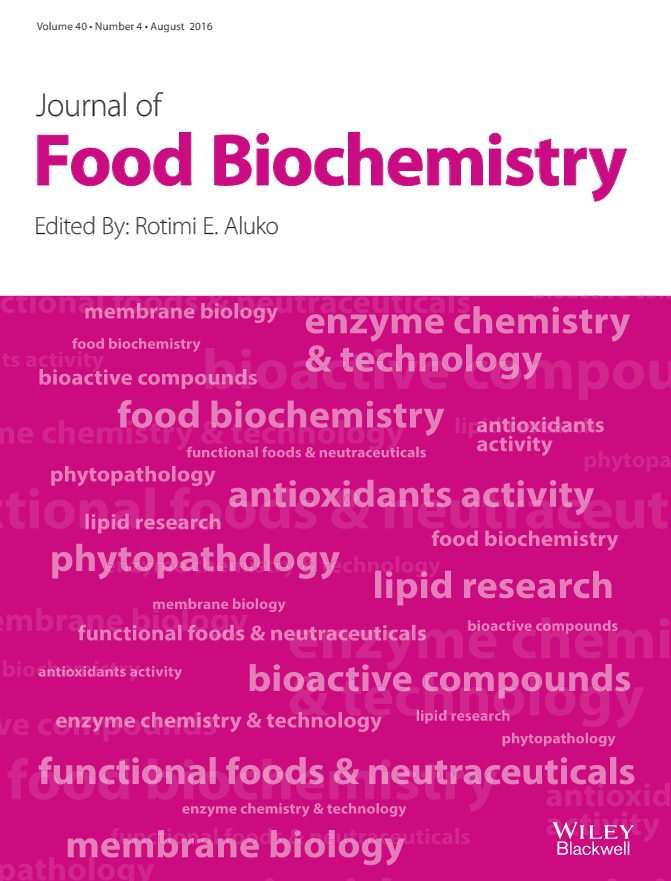
Systematic Review
Cinnamon supplementation contributes to the improvement of insulin resistance in patients with PCOS.
Javad Heshmati, Mahdi Sepidarkish, Mojgan Morvaridzadeh, Farnaz Farsi, Nishant Tripathi, Maryam Razavi, Mahroo Rezaeinejad
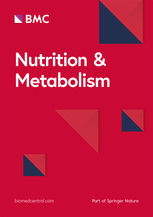
Systematic Review
Green tea supplementation significantly lowers fasting glucose levels but does not significantly affect fasting insulin and haemoglobin A1c values.
Xu R, Bai Y, Yang K, Chen G

Randomised Controlled Trial
Lemon juice, but not black tea, can lower and delay the blood glucose concentration peak after consuming bread.
Freitas D, Boué F, Benallaoua M, Airinei G, Benamouzig R, Le Feunteun S

Randomised Controlled Trial
Daily intake of 3 grams of oat beta-glucans significantly reduces LDL-Cholesterol, Total Cholesterol, and non-HDL-Cholesterol levels without impacting intestinal well-being or glucose levels.
Cicero AFG, Fogacci F, Veronesi M, Strocchi E, Grandi E, Rizzoli E, Poli A, Marangoni F, Borghi C
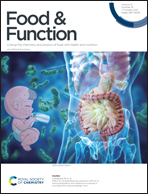
Review Article
Coffee and decaffeinated coffee appear to provide long-term protection against developing type 2 diabetes, potentially due to the influence of chlorogenic acids.
Williamson G
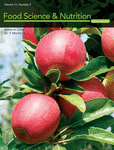
Randomised Controlled Trial
Pomegranate juice can reduce melatonin, increase insulin levels, and improve insulin resistance in individuals with impaired fasting glucose.
Banihani SA, Fashtaky RA, Makahleh SM, El‐Akawi ZJ, Khabour OF, Saadeh NA

Review Article
Honey, comprising mainly carbohydrates, particularly fructose and glucose, demonstrates potential performance benefits and immunological advantages when consumed around exercise, suggesting a role in exercise nutrition.
Hills , Mitchell , Wells , Russell
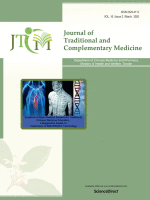
Systematic Review
Coffee consumption, in the long term, improves glucose metabolism but may cause unfavourable acute effects.
Reis CEG, Dórea JG, da Costa THM

Systematic Review
Drinking certain types of mineral water can positively influence metabolic syndrome factors like blood pressure, cholesterol, and blood sugar levels.
Costa-Vieira D, Monteiro R, Martins MJ

There is low quality evidence that bitter melon adjunct preparations improved glycemic control in type 2 diabetes mellitus patients.
Peter EL, Kasali FM, Deyno S, Mtewa A, Nagendrappa PB, Tolo CU, Ogwang PE, Sesaazi D

Animal Study
Ripened Pu-erh tea extract demonstrates a stronger anti-diabetic impact than raw Pu-erh tea extract, potentially due to the fermentation process and its probiotic benefits to certain gut bacteria.
Qianzhi Ding, Wei Zheng, Bowei Zhang, Xiaojuan Chen, Jie Zhang, Xu Pang, Yong Zhang, Dexian Jia, Surui Pei Yuesheng Dong Baiping Ma
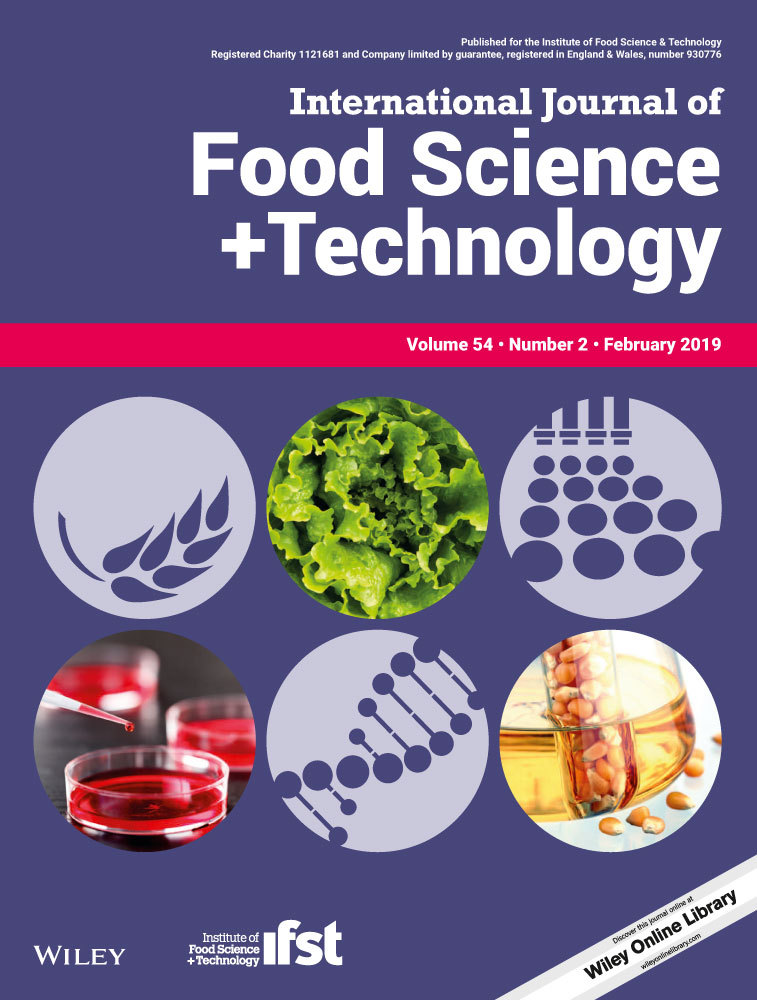
Animal Study
Pu-erh tea has a significant anti-hyperglycaemic effect, with its efficacy increasing over time and with higher dosages.
Lin, H.-C., Lee, C.-T., Yen, Y.-Y., Chu, C.-L., Hsieh, Y.-P., Yang, C.-S. and Lan, S.-J.
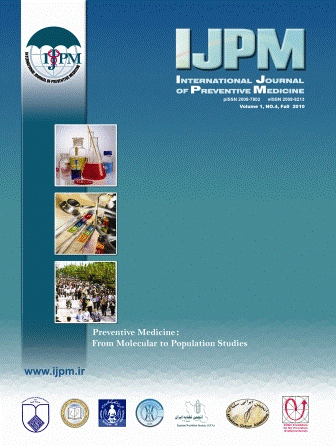
Systematic Review
Decaffeinated coffee enriched with chlorogenic acid does not significantly affect blood glucose levels in healthy humans, even though it does impact animals.
Faraji H

Systematic Review
Radish has been identified as having antidiabetic effects, making it favorable for those with diabetic conditions.
Saleem Ali Banihani

Systematic Review
Cocoa consumption has strong beneficial impacts on cardiovascular health, reducing blood pressure, improving vascular function, and modulating lipid and glucose metabolism.
Ludovici V, Barthelmes J, Nägele MP, Enseleit F, Ferri C, Flammer AJ, Ruschitzka F, Sudano I
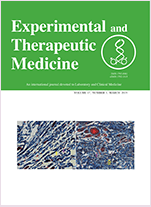
Randomised Controlled Trial
Pomegranate juice consumption over a short period promotes red blood cell production without significantly changing metabolic health and inflammation markers in healthy individuals.
Manthou E, Georgakouli K, Deli CK, Sotiropoulos A, Fatouros IG, Kouretas D, Haroutounian S, Matthaiou C, Koutedakis Y, Jamurtas AZ
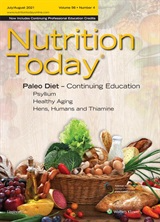
Review Article
Fenugreek can be beneficial as an adjunct in controlling high blood glucose and lipid levels in people with diabetes.
Singletary, Keith W.
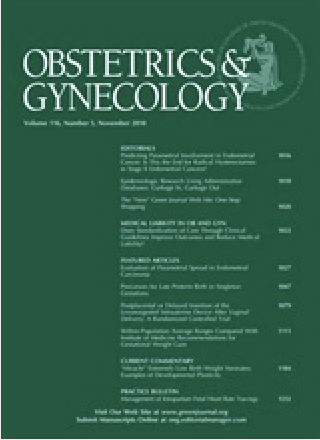
Case Report
Raspberry leaf consumption may decrease insulin requirements in pregnant women with gestational diabetes mellitus.
Cheang KI, Nguyen TT, Karjane NW, Salley KES
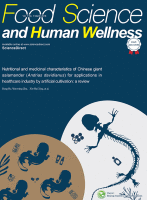
Experimental Study
Pu-erh tea water extracts could potentially enhance liver health and reduce oxidative stress in rats on a high-fat diet.
Jingjing Su, Xueqing Wang, Wenjun Song, Xiaoli Bai, Changwen Li
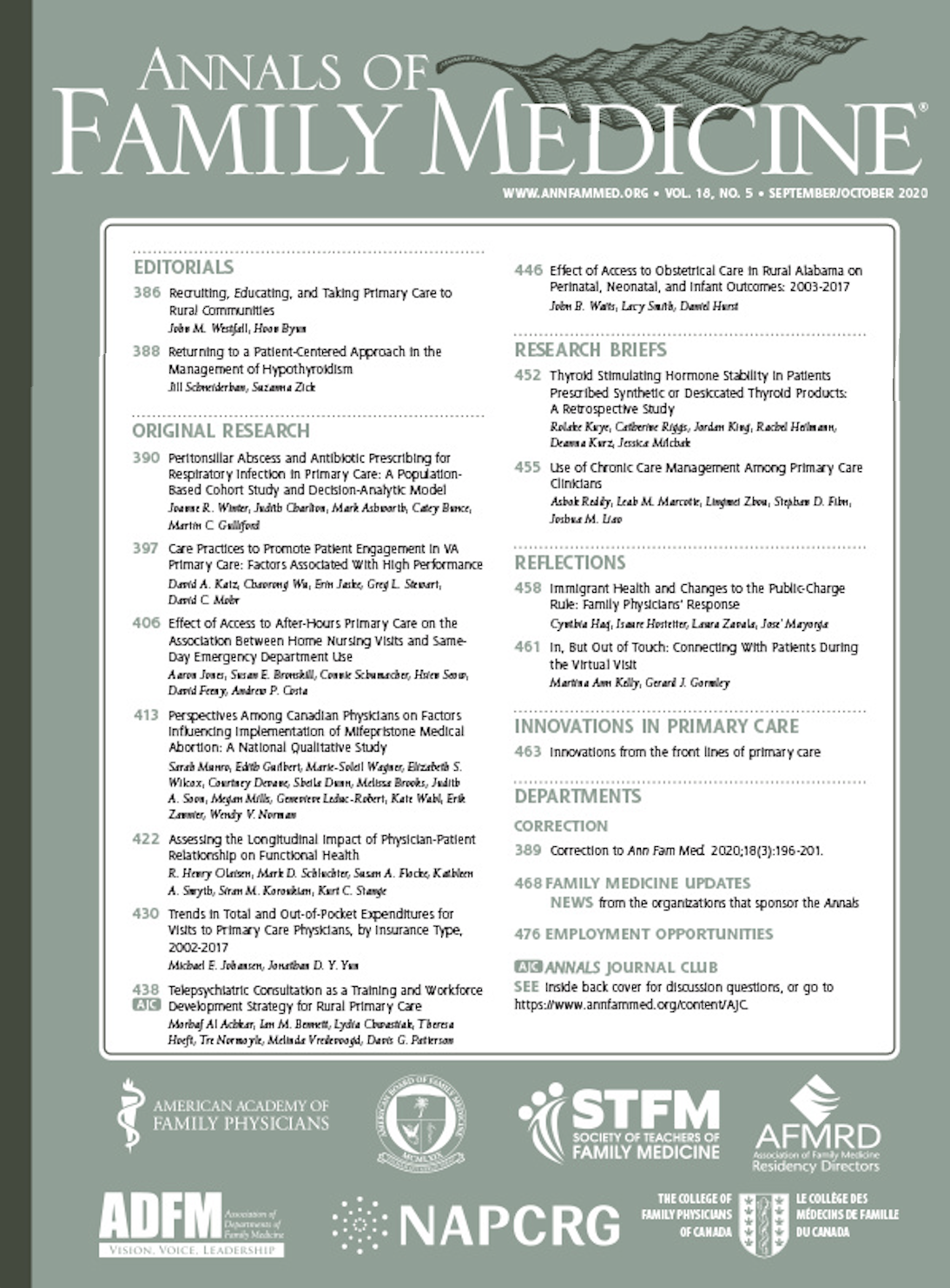
Systematic Review
The consumption of cinnamon is associated with a statistically significant decrease in levels of fasting plasma glucose, total cholesterol, LDL-C, and triglyceride levels, and an increase in HDL-C levels.
Robert W. Allen, Emmanuelle Schwartzman, William L. Baker, Craig I. Coleman and Olivia J. Phung
Executive Summary
Write an executive summary in the form of a blog article on the topic of "Research into Chinese medicine treatment for Glucose" summarising the research below and using language that can be easily understood by patients and avoiding medical jargon using a professional and caring tone of voice.
Write an executive summary in the form of a blog article on the topic of "Researched Chinese medicine treatments for Glucose" summarising the research below in an objective and easy to understand way, and using language that can be easily understood by patients. Group the article into Chinese medicine treatments first, followed by nutrition and other treatments. Avoid using medical jargon and use a professional and caring tone of voice.
Write me a concise but easy to understand executive summary on the topic of "Chinese medicine treatments for Glucose" based on the following research that I will give you. Your summary should be 2 paragraphs long in Australian English spelling and include references to the studies.
A Experimental Study published in 2024 in the journal Journal of Agricultural and Food Chemistry found that The ZJMP-2 polysaccharide fraction from jujube, consisting of various sugars and acid, significantly enhances immune cell activity and stimulates lymphocyte proliferation. The researchers isolated and purified a new water-soluble polysaccharide fraction, ZJMP-2, from the Jujube plant. Various scientific methods including Fourier transform infrared spectroscopy, high-performance gel permeation chromatography-laser light scattering, gas chromatography-mass spectrometry, scanning electron microscopy, atomic force microscopy, and nuclear magnetic resonance analyses were employed to characterize ZJMP-2. This polysaccharide is composed of glucose, galactose, arabinose, rhamnose, and galacturonic acid. The study determined its molecular structure and variations that may contribute to its immunoregulatory effect. In terms of the results, ZJMP-2 substantially increased the expression levels of proteins that are important in the immune response, resulting in the activation of macrophages - immune cells that destroy harmful organisms - and promoting the proliferation of lymphocytes - another type of immune cell. This resulted in observable activity in RAW264.7 cells and spleen lymphocytes. ZJMP-2 was also found to boost the heart, spleen, and bone marrow indices, along with spleen cell counts and peripheral blood cell counts. In addition, the number of heart and bone marrow cells in mice increased through the use of ZJMP-2.
A Review Article published in 2024 in the journal Current Nutrition Reports found that Ziziphus jujuba and its main components, lupeol and betulinic acid, show promise in treating complications of metabolic syndrome, including diabetes, obesity, and hypertension. The research assessed the properties of Ziziphus jujuba and its main bioactive agents, lupeol and betulinic acid, in relation to metabolic syndrome. Investigations focussed on their potential roles in glucose uptake enhancement, hepatic glucose synthesis reduction, insulin sensitivity improvement, and lipid profile modulation. Studies involved identifying the influence of these substances on key signaling pathways and insulin signaling proteins, as well as evaluating their anti-adipogenic effects and capacity to improve endothelial function. Ziziphus jujuba and its constituents exhibited potential therapeutic benefits for metabolic syndrome by facilitating glucose uptake, reducing glucose synthesis, and improving insulin sensitivity. They also showed potential in moderating lipid synthesis and fat accumulation, demonstrating anti-fatty effects and a capacity to influence adipogenic enzymes and transcription factors. Moreover, these substances demonstrated enhanced endothelial function, reflecting positively on vascular health. These accumulative findings suggest promising potential for Z. jujuba, lupeol, and betulinic acid as natural treatments for metabolic syndrome complications.
A Randomised Controlled Trial published in 2023 in the journal Nutrients found that Consumption of unripe avocado extract in the diet may lower postprandial insulin levels in overweight adults with previously elevated insulin levels. In this study, a double-blinded, randomised controlled trial was performed on 60 non-diabetic adults (with a majority of 47 being women, average age 48 years, BMI 34.0 kg/m). The participants were stratified by sex and randomised into two groups. One group daily consumed an extract from unripe avocado (10 g finely ground, freeze-dried unripe avocado), while the other took a placebo (10 g finely ground cornmeal supplemented with 5% spinach powder) over a period of 12 weeks. The primary outcome measured was the change in glucose area under the curve (AUC) in response to a 75 g oral glucose tolerance test. The results showed no significant differences between both groups in terms of glucose AUC, insulin AUC, or cardiovascular outcomes. However, in a subgroup analysis focusing on participants with above median baseline postprandial insulin levels, there was a notable reduction in insulin AUC in those who consumed the avocado extract compared to the placebo. This suggests that the daily consumption of an unripe avocado extract, enriched in MH, might not significantly impact glucose tolerance or insulin sensitivity in obese non-diabetic adults. Nonetheless, there seems to be a potential benefit of this intervention on postprandial insulin levels in individuals with initially elevated insulin responses.
A Systematic Review published in 2023 in the journal Current Medicinal Chemistry found that Consumption of apple cider vinegar significantly improves certain risk factors for cardiometabolic syndrome, notably fasting blood glucose, glycosylated hemoglobin, and total cholesterol. This study applied a systematic review and meta-analysis of clinical trials found in PubMed, Scopus, and ISI Web of Science databases. In this process, trials evaluating the effects of apple cider vinegar consumption on cardiometabolic syndrome risk factors were sought. In total, 25 clinical trials were included in the study, these trials encompassed 1320 adult participants. The consumed apple cider vinegar led to a general improvement in fasting blood glucose, glycosylated hemoglobin, and total cholesterol. However, for body mass index, insulin resistance, serum insulin, triglycerides, low-density lipoprotein cholesterol, and high-density lipoprotein cholesterol, no significant results were observed. Conducting a subgroup analysis, the study identified a significant decrease in fasting blood glucose, glycosylated hemoglobin, total cholesterol, and triglycerides in diabetic patients. Further, it was observed that the apple cider vinegar significantly reduced fasting blood glucose levels regardless of the duration of administration and also decreased triglycerides concentration when consumed for 12 weeks or more.
A Cohort Study published in 2023 in the journal The Journal of Nutrition found that Avocado consumption is linked to better glucose regulation, with metabolomic biomarkers of avocado intake showing even stronger associations with lower glycemia. The study used baseline data from 6224 multi-ethnic older adults, including self-reported avocado intake, fasting glucose and insulin. Untargeted plasma proton nuclear magnetic resonance contributed to metabolomic features, with data available for a subset of 3438 participants. The researchers then assessed the incidence of type 2 diabetes over approximately an 18-year follow-up period. They conducted a metabolome-wide association study comparing avocado consumers to nonconsumers and examined the features' associations with glycemia, both cross-sectionally with fasting insulin and glucose, and longitudinally with the incidence of type 2 diabetes. The research identified three highly-correlated spectral features associated with avocado intake at metabolome-wide significance levels and grouped into a single biomarker. These features didn't demonstrate any strong associations with overall dietary quality or any of the 47 other food groups, reinforcing their validity as an avocado intake biomarker. While avocado intake had a modest effect on lowering fasting insulin, this effect was not significant when adjusting for participants' body mass index. However, the avocado intake biomarker was noticeably related to lower fasting glucose, lower fasting insulin, and a lower incidence of type 2 diabetes, even after adjusting for BMI. This illustrates the considerable influence of metabolomic insights in determining diet-health relationships and the importance of considering individual metabolic differences for health outcomes.
A Review Article published in 2023 in the journal Nutrients found that Honey intake has observed beneficial effects on various health aspects like cardiovascular, metabolic risk factors, and wound healing, primarily replacing other sweeteners. In this comprehensive review study, the researchers went beyond just looking at one or two aspects of health; instead, they embarked on an ambitious task of reviewing forty-eight clinical trials that were published between 1985 and 2022, involving a total of 3655 subjects. The researchers aimed to critically analyze the effect of honey on multiple health indices, including, but not limited to, cardiovascular and metabolic risk factors, glucose tolerance, mucositis inflicted by chemo-radiotherapy, cough in children, and wound healing. The evaluation and analysis of the data involved a thorough examination of the results of each of the clinical trials, consideration of several potential variables, and detailed cross-study comparisons. This broad and deep investigation allowed the researchers to draw correlations and pinpoint the beneficial influences of honey, considered a nutritious and natural food. The results from these clinical trials saw more beneficial effects on health from honey intake when compared to neutral or negative outcomes. It was most notably effective, particularly when used as a substitute for other sweeteners. The review also pointed out the potential use of honey as a safe adjuvant to be used in combination with drugs for specific illnesses. Confidently stating that honey has clear benefits in the clinical trials analyzed, the researchers fostered a promising narrative for the further exploration and acceptance of honey as a health booster.
A Animal Study published in 2023 in the journal Foods found that Long-term intake of traditionally made Doenjang, particularly high in certain species, may improve symptoms of estrogen deficiency more effectively than unfermented soybeans. The study involved using four different types of traditionally made Doenjang (TMD), distinguished based on the quantities of certain species and biogenic amines they contained. These were used to observe possible alterations in energy, glucose, and lipid metabolism in estrogen-deficient female rats via potential modification of the gut microbiota. This involved comparing a control group of rats that underwent ovary removal with five other groups that were supplemented with different types of TMD and cooked soybeans. The outcomes revealed that weight gain and visceral fat mass were lower and lean body mass was higher in the TMD and cooked soybean intake groups compared to the control group, however, these figures were not as good as those in the normal control group. Additionally, the hepatic triglyceride content was lower with TMD intake. It was further observed that the intestinal health significantly improved in the TMD groups, and some groups revealed more improvements than others. Concerning gut microbiota, certain groups showed an increase in certain types of organisms, suggesting a benefit from high amounts of the specific species in TMD. The study inferred that TMD rich in certain species correlates positively with the regulation of estrogen-related markers.
A Cohort Study published in 2022 in the journal Metabolites found that Frequent consumption of sugar-sweetened coffee can adversely affect blood sugar control in patients with diabetes mellitus in Korea. This study focused on adult coffee consumption patterns in Korea using data collected from the Korea National Health and Nutrition Examination Survey between 2008 to 2020. The consuming habits of 5671 diabetic patients were analyzed considering how often they consumed a mixture of coffee with sugar and creamer, referred commonly as 3-in-1 coffee. The methods used involved assessing these patterns through a 24-hour recall. Blood sugar control was evaluated using fasting blood glucose levels and hemoglobin A1c levels, in line with the targets set by the Korean Diabetes Association. The results revealed that nearly half of the diabetic patients in this study consumed sugar-sweetened coffee. These patients demonstrated significantly higher fasting blood glucose and hemoglobin A1c levels compared to those who did not partake in such consumption. The findings also indicated an increased likelihood of patients failing to achieve their blood sugar control targets, corresponding to the frequency of their consumption of sugar-sweetened coffee.
A Randomised Controlled Trial published in 2022 in the journal Nutrients found that Both whole blueberries and freeze-dried blueberry powder significantly enhanced plasma nitrite levels, a marker of cardiovascular health, but did not significantly affect other cardiovascular risk factors. In this study, a cross-over randomised controlled trial was carried out with three groups: one consuming fresh blueberries, one consuming freeze-dried blueberry powder, and one as the control group. All participated in 1 week of treatment, with a 1-week wash-out period between treatments. The study involved the measurement of systolic and diastolic blood pressure, pulse wave velocity, plasma cholesterol levels (low-density and high-density lipoprotein cholesterol and total cholesterol), triglyceride levels, and glucose and nitrite concentrations. The results indicated an improvement of plasma nitrite levels following both whole blueberry and blueberry powder supplementations compared to their baselines, hinting at potential benefits to cardiovascular health. However, no other significant effects were observed for blood pressure, total cholesterol, low-density and high-density lipoprotein cholesterol, triglycerides, or glucose. Also, none of the changes in individual treatment arms were significantly different from the control. Essentially, the form of blueberry consumed, whether whole or in powder form, did not show any unique advantage in improving cardiovascular health factors.
A Randomised Controlled Trial published in 2022 in the journal CyTA - Journal of Food found that Avocado honey, rich in bioactive compounds, can serve as a natural sweetener without negatively impacting anthropometric and biochemical parameters. In this study, the researchers assessed the impact of consuming 25 grams of avocado honey daily for a period of four weeks on a group of 13 healthy individuals aged between 25 and 50 years, with Body Mass Indexes less than 25 kg/m2. The participants were divided into two groups, one acting as a control and the other as the honey consumption group. Despite the dietary addition of avocado honey, there were no significant deviations in the subjects' Body Mass Index and body fat percentage. Furthermore, it didn't affect biochemical parameters including fasting blood glucose, triglycerides, total cholesterol, high-density lipoprotein cholesterol, and low-density lipoprotein cholesterol. Consequently, avocado honey may be considered an effective functional food or natural sweetener.
A Animal Study published in 2022 in the journal Frontiers in Nutrition found that Certain natural mineral waters, when combined with a low-calorie diet, effectively reduce cholesterol and glucose levels in mice with metabolic syndrome. The study involved 125 male and female C57BL/6 mice. Ten mice were kept as a healthy control group, fed a standard diet with tap water. The remaining 115 mice were fed a high-calorie diet (60% fat, 10% fructose in water) for four months to induce metabolic syndrome, followed by a two-month treatment phase with a low-calorie diet and various types of natural mineral water (NMW). The mice were divided into six treatment groups, each receiving a different NMW, and a control group receiving tap water. The study monitored body weight and blood biochemistry over six months. After four months on a high-calorie diet, both male and female mice developed obesity, high cholesterol, and high blood sugar, with males showing greater increases. During the treatment phase, NMWs rich in sulphate, magnesium, bicarbonate, and minimally mineralized water, along with a low-calorie diet, significantly lowered total cholesterol, HDL cholesterol, and glucose levels. Sex differences were observed during both the induction and treatment phases. These findings indicate that specific NMWs, in conjunction with a low-calorie diet, may help manage blood lipid and glucose levels in metabolic syndrome, although further research is needed to confirm these results in humans.
A Meta-Analysis published in 2022 in the journal Nutrition, Metabolism and Cardiovascular Diseases found that Blueberry and cranberry consumption significantly lowered fasting blood glucose and glycated hemoglobin levels in individuals with diabetes. The research methodology involved a systematic literature review and meta-analysis using publications sourced from seven different databases (PubMed, LILACS, Scielo, Scopus, Web of Science, Cochrane, and Embase) up until May 2021. The researchers included randomized clinical trials where the effects of blueberry or cranberry on parameters linked to type 2 diabetes such as fasting blood glucose, insulin resistance, and glycated hemoglobin were compared. The quality of these studies was evaluated using the Cochrane scale while the Egger test was utilized to assess publication bias and the meta-regression evaluated the estimated effect sizes with potential moderator variables. Following an initial identification of 2034 studies, 39 full-text studies were read, out of which 22 met the criteria to be included in the final meta-analysis. The findings showed that individuals with diabetes experienced significant reductions in fasting blood glucose and glycated hemoglobin readings following the consumption of blueberries or cranberries. However, no significant effects were seen on insulin resistance. While the results were not universally significant when it came to the general population, an exception was found in the sensitivity analysis for fasting blood glucose.
A Systematic Review published in 2022 in the journal Phytotherapy Research found that Consumption of sesame seeds and its products positively influences human glucose metabolism, potentially making it a beneficial addition to glucose-lowering diets. The methodology involved conducting a systematic review and meta-analysis on the effect of sesame seeds consumption on blood glucose and insulin resistance in adults. The researchers gathered data from recognized academic resources like PubMed/MEDLINE, SCOPUS, Web of Science, Google Scholar, and EMBASE, which included controlled clinical trials up until February 2021. The sesame products in these trials ranged from sesame oil, sesamin, and tahini, with the intervention period lasting from 45 days to 9 weeks. The results illustrate that the intake of sesame and its products significantly improved fasting blood glucose and Hemoglobin A1c levels. Nonetheless, the results regarding fasting serum insulin and the homeostatic model assessment for insulin resistance were not found to have any significant relation. Hence, the consumption of sesame might be a beneficial supplement for managing glucose levels in humans.
A Meta-Analysis published in 2021 in the journal Frontiers in Endocrinology found that Tea supplements, especially green tea, significantly decrease fasting blood glucose and fasting insulin levels and reduce body weight in women with polycystic ovary syndrome. The researchers conducted a systematic review and meta-analysis by searching published literature in different databases from 1985 to September 2021. The data from randomized controlled trials were extracted to assess the effectiveness of tea versus placebo in women with polycystic ovary syndrome. Weighted mean differences were pooled using a random-effects model. A total of six trials with 235 participants were included in this review. The study resulted in finding that consumption of tea supplements improved body weight, fasting blood glucose, and fasting insulin more significantly when compared with a placebo. Notably, green tea was effective on body weight, fasting insulin, fasting blood glucose, and certain reproductive hormone indexes. The therapy was also found to be safely tolerated by the patients. It's important to note that tea had significant effects on fasting blood glucose and hormone levels in trials with intervention duration of 3 months or more. Differences were noticed among Asian and Caucasian PCOS patients regarding the effect of tea on weight and fasting insulin.
A Systematic Review published in 2021 in the journal Journal of Ovarian Research found that Cinnamon supplementation may significantly enhance metabolic status in women with polycicstic ovary syndrome, notably improving high-density lipoprotein and insulin sensitivity, and decreasing low-density lipoprotein, triglyceride, and blood glucose levels. The systematic review employed a PICO framework where the population was subjects with polycystic ovary syndrome (PCOS), the intervention was oral cinnamon supplement, the comparison group was either a control or a placebo group, and the outcome measured were changes in inflammatory, oxidative stress, lipid profile, glycemic, hormonal and anthropometric parameters, and ovarian function. To gather relevant research studies, databases including PubMed, Scopus, EMBASE, ProQuest, and Google Scholar were searched right from their inception until January 2020 using specific, relevant keywords. Out of the initial 266 studies found, only nine met the criteria for evaluation. The types of studies considered for this review included all clinical trials, animal studies, and english-language journal studies. The results showed a promising improvement in metabolic status in PCOS patients with cinnamon supplementation. This was shown through increased high-density lipoprotein and insulin sensitivity, and a decrease in low-density lipoprotein, triglyceride, and blood glucose levels in these patients. However, the impact of cinnamon on body weight and body mass index was inconsistent across the studies. Similarly, while the studies showed improved results regarding the effects of cinnamon on oxidative stress and ovarian function, the specific mechanisms behind these effects still need to be fully elucidated. Future studies should focus on observing clinical changes after cinnamon supplementation in PCOS through clinical trials with higher doses of cinnamon and a longer duration of intervention.
A Animal Study published in 2021 in the journal Nutrients found that Adzuki beans, when added to a high-fat diet, lessen obesity, improve liver function, enhance insulin sensitivity, and balance gut microbiota. In the experiment, mice were placed on one of three diets for 12 weeks: a low-fat diet, a high-fat diet, or a high-fat diet supplemented with 15% adzuki beans. The study observed and tested for changes related to obesity, lipid accumulation, serum lipid and lipopolysaccharide levels, liver function, hepatic steatosis, glucose homeostasis, insulin sensitivity, and gut microbiota imbalances. Through a process called PICRUSt2 analysis, the researchers were then able to draw potential associations between changes in the gut microbiota and the metabolism of various substances. In the discussion of the results, the supplementation of adzuki beans to a high-fat diet had a significant impact. Obesity and lipid accumulation were visibly reduced, as were negative impacts on liver function and unhealthy levels of serum lipids and lipopolysaccharides. Notably, glucose homeostasis was improved through an increase in insulin sensitivity. The imbalances in gut microbiota, typically seen in a high-fat diet, were significantly reversed through adzuki bean supplementation. High-fat diet dependent taxa returned to a more normal status, which in turn suggested associations with the metabolism of carbohydrates, lipids, sulfur, and two types of amino acids.
A Systematic Review published in 2021 in the journal Medicina found that Coffee extract supplementation significantly improves parameters of metabolic syndrome, with the effects varying according to the types and doses of coffee administered. In this systematic review and meta-analysis, the researchers sourced relevant articles from PubMed and Scopus published between 2015 and 2020. The investigation focused on randomised controlled trials that studied the impact of coffee consumption on factors like body measurements, blood sugar indices, lipid profiles, and blood pressure. Effects of green coffee extract (GCE) supplementation and decaffeinated coffee were analysed in the study. Following a meticulous extraction and analysis of data from the relevant studies, the researchers found significant improvements in parameters of metabolic syndrome upon supplementation with GCE and decaffeinated coffee. The GCE supplementation, ranging from 180 to 376 mg, was found to reduce waist circumference, triglyceride levels, systolic and diastolic blood pressure while increasing high-density lipoprotein-cholesterol levels. The intake of decaffeinated coffee reduced fasting blood glucose levels. The analysis revealed improvements in metabolic syndrome outcomes for participants consuming GCE and liquid decaffeinated coffee.
A Systematic Review published in 2021 in the journal Nutrients found that Chocolate and cocoa product consumption significantly improved lipid profiles, but had no significant effect on other heath aspects such as cognitive function and blood pressure. A systematic search was performed on academic databases such as MEDLINE, EMBASE, and the Cochrane Central Register of Controlled Trials. The researchers utilized a precise search strategy and keywords to gather the most relevant studies and evidence. The studies focused on a variety of health effects related to the consumption of chocolate and cocoa products, like their effects on skin, cardiovascular health, anthropometry, cognitive function, blood glucose levels, and overall quality of life. The research revealed considerable improvements in lipid profiles (particularly in triglycerides) among those who consumed chocolate or cocoa products, compared to controls. However, there were no significant differences observed in other outcome parameters related to skin health, blood pressure, cognitive function, anthropometry, blood glucose levels, and quality of life between the chocolate/cocoa consumption group and the control group. The subjects generally accepted chocolate well, with gastrointestinal disturbances and unpalatability reported as their main concerns.
A Systematic Review published in 2021 in the journal BMC Complementary Medicine and Therapies found that Apple cider vinegar intake can significantly decrease total cholesterol and fasting plasma glucose levels contributing to better cardiovascular health among adults. The research process involved a thorough examination of electronic databases such as Medline, Scopus, Cochrane Library, and Web of Knowledge, from their creation until January 2020. The goal was to discover any clinical trial that explored the influence of apple cider vinegar (ACV) on lipid profiles and glycemic indicators. Studies where ACV was combined with other interventions or where the intervention duration was less than two weeks were excluded. To manage the differences between studies, a random-effects model was applied during the meta-analysis process comprising nine studies, including ten study arms. ACV use demonstrated a remarkable decrease in total cholesterol and fasting plasma glucose (FPG) levels. However, there wasn't a noticeable impact observed on LDL-C, HDL-C, fasting insulin concentrations, or HOMA-IR serum levels. When analyzed further, it was found that a reduction in serum TC and TG occurred in a patient subgroup with type 2 diabetes, those who consumed less than or equal 15 mL/day of ACV, and those who consumed it for over 8-weeks. Consequently, a significant decrease in FPG levels was found in studies where participants consumed ACV for more than 8 weeks. Interestingly, FPG and HDL-C levels appeared to increase in participants who were otherwise healthy.
A Systematic Review published in 2021 in the journal Phytotherapy Research found that The consumption of cocoa or dark chocolate can reduce low-density lipoprotein cholesterol and fasting blood sugar levels in diabetic patients. A systematic search of databases identified eight randomized controlled trials (RCTs) with 433 participants for meta-analysis. The results demonstrated a substantial reduction in LDL-c levels (WMD: −15.49 mg/dl) and FBS concentrations (WMD: −6.88 mg/dl) following cocoa/dark chocolate consumption. The study emphasizes the potential positive effects of cocoa/dark chocolate on the metabolic profile of diabetic individuals. The meta-analysis included RCTs focusing on cocoa/dark chocolate interventions in diabetic patients, with a significant pooled analysis showing reduced LDL-c and FBS levels. The findings suggest that incorporating cocoa/dark chocolate in the diet of diabetic individuals could be beneficial for managing lipid profile and glycemia. Further research is necessary to solidify these insights and understand the complete impact on metabolic health.
A Randomised Controlled Trial published in 2021 in the journal BMC Endocrine Disorders found that Adding oat bran to the diet of pregnant women with gestational diabetes can help significantly reduce their fasting and postprandial blood glucose levels. In the methodology of this study, a randomized clinical trial was conducted on 112 pregnant women suffering from gestational diabetes. These women were randomly split into two groups of 56. Both groups were given a diet specifically designed for managing gestational diabetes. However, the intervention group additionally received 30 grams of oat bran daily at lunch and dinner for a period of 4 weeks. The researchers performed tests on fasting blood glucose and two-hour postprandial glucose levels for both groups prior to the intervention and then at two-week intervals during the intervention. The results of the study revealed that the average blood glucose level before the intervention showed no significant differences between the two groups. However, both the mean fasting blood glucose and the two-hour postprandial glucose levels of the intervention group showed a significant decrease two and four weeks after the intervention when compared with the control group, due to the addition of oat bran in their diet.
A Systematic Review published in 2021 in the journal Evidence-Based Complementary and Alternative Medicine found that Acupuncture could improve body mass index, waist-to-hip ratio as well as insulin resistance (HOMA-IR) in patients with PCOS. Overall, we found that acupuncture was closely associated with decreased BMI, WHR, FPG, and HOMA-IR and that acupuncture could significantly improve HOMA-IR and the level of fasting glucose in patients with PCOS, which confirms previous reports. It is also reported that acupuncture can decrease BMI and WHR. FINS, 2hFPG, and 2hFINS were reduced in the acupuncture groups, but these differences were not significantly different. The results of the lipid profile were reported in a few studies, and we found that acupuncture significantly improved triglycerides levels, while the differences in total cholesterol, LDL-C, and HDL-C were not significant. Acupuncture seems to be associated with a few adverse events, and the reported adverse events, such as bleeding, were mild and transient, demonstrating that acupuncture is safe and reliable. Thus, we conclude that acupuncture, compared with standard therapy, is more effective and safer in improving glucose metabolism and insulin sensitivity in patients with PCOS.
A Cohort Study published in 2021 in the journal Nutrients found that Moderate coffee consumption may potentially reduce the risk of low HDL-C and high fasting blood glucose amongst Korean male adults. The study was designed to evaluate the link between coffee intake and the onset of metabolic syndrome, utilizing participant data sourced from the Health Examinees study. Metabolic Syndrome was identified based on the criteria set by the Adult Treatment Panel III of the National Cholesterol Education Program. The researchers deployed a multivariate Cox proportional hazards regression model to examine the relationship between different levels of coffee consumption and the incidence of metabolic syndrome. In the analysis of the results, moderate coffee consumption, approximately 1-3 cups per day, in male participants was found to have an inverse correlation with low high-density lipoprotein cholesterol (HDL-C) and high fasting blood glucose. More so, this inverse correlation was further observed with the consumption of 3-in-1 coffee, which includes sugar and creamer. This suggests that male habitual coffee drinkers may be less likely to experience low HDL-C and high fasting blood glucose, key markers of metabolic syndrome.
A Systematic Review published in 2021 in the journal Diabetes & Metabolic Syndrome: Clinical Research & Reviews found that The supplementary intake of green tea does not significantly affect blood glucose, fasting insulin, hemoglobin A1c, and insulin resistance in patients with type 2 diabetes mellitus. To examine the impact of green tea consumption on type 2 diabetes mellitus patients, a comprehensive search for relevant randomized controlled trials was conducted across multiple databases, including Web of Science, PubMed, and Scopus, without any language or time restrictions until June 2019. Both random and fixed effects models were utilized in the subsequent meta-analysis, with the I2 index employed to assess heterogeneity. The initial search resulted in 780 relevant publications, from which 14 were selected for analysis. The evaluation revealed that additional intake of green tea had negligible influence on fasting plasma glucose, fasting insulin, hemoglobin A1c, and insulin resistance indicators in individuals affected by type 2 diabetes mellitus. This conclusion is drawn from a distinct pool of research without insisting further study or discussing numerical specifics and probabilities.
A Systematic Review published in 2020 in the journal British Journal of Nutrition found that Consuming walnuts does not significantly alter blood glucose levels, indicating cardiovascular protective effects of walnuts are not due to improved glycaemic control. The study involved a systematic review and meta-analysis of previous randomized trials that investigated the effects of walnut consumption on glycaemic control markers such as fasting blood glucose, insulin, and glycated Hb. Studies were found through a comprehensive search of databases including Medline, PubMed, CINAHL, and Cochrane up to March 2nd, 2019. The included studies' risk of bias was assessed using the Cochrane Risk of Bias tool. In light of the results, although 16 studies were included in the review, it was found that walnut consumption did not significantly impact fasting blood glucose levels or other markers for glycaemic control. Recognizing that the studies included in the analysis were either deemed to have 'some concerns' or 'high risk' of bias, these results suggest that the beneficial effects of walnuts on cardiovascular health aren't caused by improvements in glycaemic control.
A Experimental Study published in 2020 in the journal Scientific Reports found that Mu Dan Pi (MDP) and its water extract may serve as potential treatment options for inflammatory bowel disease. In the study, the anti-inflammatory impacts of Mu Dan Pi and its primary active compounds on inflammatory bowel disease were assessed systematically. Screening was done via NF-κB and interferon regulatory factor reporter assays in THP-1 cells, stimulated with particular gene activators. This process was later verified in bone marrow-derived macrophages. The water extract of Mu Dan Pi considerably hindered the activation of NF-κB and IRF reporters, modifying downstream signaling pathways and decreasing the production of IL-6 and TNF-α, based on dosage. In subsequent observations, among the five known active components identified within Mu Dan Pi, one component known as PGG distinguished itself as the most effective at inhibiting reporters and reducing IL-6 and TNF-α. On a clinical application level, both MDP powder and its water extract mitigated colitis and pathological changes in mice, although PGG did not present any significant reduction. This suggests that the anti-inflammatory qualities of Mu Dan Pi may hold therapeutic potential for inflammatory bowel disease.
A Clinical Study published in 2020 in the journal European Journal of Nutrition found that Montmorency tart cherry juice can significantly improve blood pressure, fasting glucose, cholesterol rates and respiratory exchange ratio in those with metabolic syndrome. In a blind, placebo-controlled, crossover trial, the researchers recruited twelve participants suffering from metabolic syndrome. They were given either Montmorency tart cherry juice or a placebo for seven days. During this period, a variety of blood-based and functional cardio-metabolic biomarkers were analysed both before and after the supplementation period. In addition to this seven-day supplementation, the acute response of the participants to a single bolus of the treatment was measured on the seventh day, at intervals up until five hours post ingestion of the bolus. The researchers found that certain key health markers showed a significant improvement in the group that had taken the Montmorency tart cherry juice. These markers included 24-hour blood pressure levels, fasting glucose levels, total cholesterol, the ratio of total cholesterol to high-density lipoproteins (the "good" cholesterol), as well as resting respiratory exchange ratio. These findings suggest that the Montmorency tart cherry juice has the potential to drastically improve cardio-metabolic health in those affected by metabolic syndrome.
A Systematic Review published in 2020 in the journal Journal of Food Biochemistry found that Cinnamon supplementation contributes to the improvement of insulin resistance in patients with PCOS. As the first systematic review and meta-analysis evaluating the effect of cinnamon in women with PCOS, this study indicates that supplementation with cinnamon reduced HOMA-IR and FSI.
A Systematic Review published in 2020 in the journal Nutrition & Metabolism found that Green tea supplementation significantly lowers fasting glucose levels but does not significantly affect fasting insulin and haemoglobin A1c values. The researchers performed a systematic review and meta-analysis of randomized control trials which examined the effect of green tea on glycemic control. Using online databases like PubMed, Embase, and Cochrane Library, they identified relevant trials up until February 2020. They then employed a random-effects model in order to estimate the weighted mean difference. In the discussion of the results, it was found that twenty-seven trials, including 2194 subjects, were part of the meta-analysis. The collected data indicated that green tea lowered fasting blood glucose levels significantly. However, the same was not observed for fasting insulin and HbA1c values, which remained relatively unchanged despite green tea consumption. Moreover, substantial differences were noted in the range of responses, indicating significant heterogeneity, especially for fasting insulin levels. Despite these discrepancies, the short-term trials collectively demonstrated the beneficial effect of green tea supplementation in reducing fasting glucose levels.
A Randomised Controlled Trial published in 2020 in the journal European Journal of Nutrition found that Lemon juice, but not black tea, can lower and delay the blood glucose concentration peak after consuming bread. The methodology used in this research consisted of a randomized crossover study involving three test groups consuming equal portions of bread partnered with three different beverages: water, black tea, and lemon juice. Each participant's capillary blood glucose concentrations were monitored over a 180-minute period using the finger-prick method. Additionally, the participants' free-choice energy intake was assessed three hours after the bread and beverage consumption to gauge the effects of the different beverages. The results of the research showed a distinct difference between the effects of lemon juice and black tea on the glycemic response to bread. It was found that black tea didn't affect the blood glucose responses. However, lemon juice significantly reduced and delayed the peak of blood glucose concentration. It's noteworthy that the pH-lowering effect of the lemon juice performed similarly to other acidic foods, indicating that incorporating acidic drinks or foods in starch-rich meals is an effective strategy to minimize their glycemic impact. Interestingly, none of the beverages tested had an impact on the participants' ad libitum energy intake.
A Randomised Controlled Trial published in 2020 in the journal Nutrients found that Daily intake of 3 grams of oat beta-glucans significantly reduces LDL-Cholesterol, Total Cholesterol, and non-HDL-Cholesterol levels without impacting intestinal well-being or glucose levels. The BELT Study was a double-blind, placebo-controlled, cross-over randomized clinical trial conducted over 8 weeks. It involved 83 Italian subjects with moderate hypercholesterolemia, who had low cardiovascular risk and followed a Mediterranean diet. The participants were administered either 3g/day of oat beta-glucans or a placebo. The results indicated that beta-glucans significantly reduced LDL-C, TC, and non-HDL-C levels in participants from both the baseline and the 4 and 8-week marks. However, no notable impact was observed on fasting plasma glucose or self-perceived intestinal well-being. These outcomes remained consistent irrespective of whether the subjects were given the beta-glucans or the placebo.
A Review Article published in 2020 in the journal Food & Function found that Coffee and decaffeinated coffee appear to provide long-term protection against developing type 2 diabetes, potentially due to the influence of chlorogenic acids. This research observes a considerable protective effect of coffee and decaffeinated coffee over the long term against the onset of type 2 diabetes, discovered through epidemiological studies. A complex mechanism associated with chlorogenic acids is proposed, with the theory examining their potential impact on blood sugar levels. Interestingly, the effects of decaffeinated coffee on post-meal blood sugar and insulin, if consumed with carbohydrates, is minimal, although these substances might be impacting incretin hormones. The potential effects of chlorogenic acids are examined from the perspective of not directly affecting carbohydrates digestion, but perhaps influencing glucose absorption and subsequent utilisation. Different factors, such as metabolites derived from endogenous pathways or the influence of the gut microbiota, are considered. The study proposes a need for chronic intervention studies on decaffeinated coffee, in sync with more focused in vitro studies using realistic concentrations of relevant chlorogenic acid metabolites, to further understand this protective property of coffee.
A Randomised Controlled Trial published in 2019 in the journal Food Science & Nutrition found that Pomegranate juice can reduce melatonin, increase insulin levels, and improve insulin resistance in individuals with impaired fasting glucose. This study was a randomized clinical trial with 28 participants who had been diagnosed with impaired fasting glucose. They were selected from Irbid Central Laboratory and the Diabetes Clinic of the University Hospital at Jordan University of Science and Technology. Each participant received a dose of fresh pomegranate juice calculated at 1.5 ml per kilogram of their body weight. Blood samples for each participant were taken prior to, 1 hour and 3 hours after ingesting the juice. The studied parameters were melatonin, insulin, and glucose levels. In terms of results, it was found that people with impaired fasting glucose, contrary to those who were healthy, showed a significant decrease in blood glucose levels 3 hours after consuming the juice. Insulin resistance also improved significantly within the same time frame for these individuals. Furthermore, melatonin levels decreased, and insulin levels increased noticeably among both, healthy as well as those with impaired fasting glucose, an hour after the juice intake. These results suggest that fresh pomegranate juice can positively affect hormones related to diabetes and sleep.
A Review Article published in 2019 in the journal Nutrients found that Honey, comprising mainly carbohydrates, particularly fructose and glucose, demonstrates potential performance benefits and immunological advantages when consumed around exercise, suggesting a role in exercise nutrition. This review assessed nine articles, extracted from 273 results of online database searches (PubMed, MEDLINE, SPORTDiscus), focusing on the effects of honey consumption combined with exercise in humans. Methodological variations existed across studies regarding exercise stimulus, population, and nutritional interventions. Studies reported biochemical variables, with four examining honey's impact on exercise performance and five on perceptual responses. Acute supplementation around a single exercise session showed comparable responses to other carbohydrate sources, with potential performance benefits observed relative to carbohydrate-free comparators. Prolonged honey consumption may mitigate exercise-induced immunological perturbations and enhance markers of bone formation. The synthesis of diverse studies underscores honey's potential in exercise nutrition. Acute supplementation exhibited similarities in performance, perceptual, and immunological responses to other carbohydrates, with some advantages over carbohydrate-free comparators. Prolonged honey consumption showed promise in mitigating exercise-induced immunological disturbances and enhancing markers of bone formation. However, the review highlights the need for more well-controlled research to fully understand honey's role in a food-first approach to exercise nutrition.
A Systematic Review published in 2019 in the journal Journal of Traditional and Complementary Medicine found that Coffee consumption, in the long term, improves glucose metabolism but may cause unfavourable acute effects. Researchers undertook a systematic review to evaluate the impact of coffee consumption on glucose metabolism. They scanned two electronic databases, PubMed and Web of Science, for relevant studies published till September 2017. After thorough scrutiny, eight clinical trials involving 247 participants were earmarked for analysis. These trials were divided into short-term (1-3 hours) and long-term (2-16 weeks) studies for distinct evaluation. The participants' characteristics, major discoveries, and study quality were all meticulously noted and analysed. The initial short-term studies revealed that consumption of caffeinated coffee might lead to an escalation in the area under the curve for the glucose response, an immediate effect. Conversely, long-term studies suggested that caffeinated coffee might contribute to the enhancement of glycaemic metabolism over time by reducing the glucose curve and bolstering the insulin response. Despite the immediate short-term effects, an overall positive long-term impact on glucose metabolism was reported.
A Systematic Review published in 2019 in the journal Nutrients found that Drinking certain types of mineral water can positively influence metabolic syndrome factors like blood pressure, cholesterol, and blood sugar levels. This review examined 20 studies sourced from PubMed, Scopus, and Google Scholar on how mineral water consumption affects metabolic syndrome (MetSyn) features. The studies varied in their approach, including the type and composition of mineral water, the amount consumed, dietary factors, and study duration. Both human and animal studies were included, with diverse population sizes and characteristics. The research focused on several MetSyn aspects: blood pressure (BP), total triglycerides, HDL-cholesterol, glucose levels, and waist circumference (WC). The review found that certain types of mineral water had beneficial effects on blood pressure, total triglycerides, HDL-cholesterol, and glucose levels, although no significant influence on waist circumference was reported. The presence of specific minerals, elements, and active ions or molecules in the water, along with their pH levels, appeared crucial in counteracting metabolic dysfunctions and the increased acid load in diets associated with MetSyn. The studies discussed various molecular and physiological mechanisms behind these effects. However, further research is needed to fully understand the mechanisms by which mineral water consumption might protect against MetSyn features.
A published in 2019 in the journal Journal of Ethnopharmacology found that There is low quality evidence that bitter melon adjunct preparations improved glycemic control in type 2 diabetes mellitus patients. Ten studies of type 2 diabetes mellitus (n = 1045) were included in the meta-analysis. They had 4–16 weeks follow up and overall moderate to high risk of bias. Compared to placebo, M. charantia monoherbal formulation significantly reduces FPG, PPG and HBA1c with mean difference of − 0.72 mmol/L, (95% CI: −1.33, −0.12), I2 = 14%, − 1.43 mmol/L, (95% CI: −2.18, −0.67), I2 = 0, − 0.26%, (95% CI: -0.49, −0.03), I2 = 0 respectively. M. charantia also lowered FPG in prediabetes (mean difference −0.31 mmol/L, n = 52); the evidence was downgraded to low quality because the study had unclear risk of bias and inadequate sample size. No serious adverse effects were reported. M. charantia adjunct preparations improved glycemic control in T2DM patients. However, this conclusion is based on low to very low quality evidences for the primary outcomes and sparse data for several safety outcomes, thus, warrant further research. Particularly needed are the researches that focus on standardizing M. charantia formulation and determine its efficacy and safety in clinical trials with adequate sample size, designed with random sequence generation, allocation concealment of intervention and blinding of both research personnel and participants.
A Animal Study published in 2019 in the journal RSC Advances found that Ripened Pu-erh tea extract demonstrates a stronger anti-diabetic impact than raw Pu-erh tea extract, potentially due to the fermentation process and its probiotic benefits to certain gut bacteria. The methods of the study involved the processing and analysis of Pu-erh tea leaves, specifically the raw variety and the ripened type which goes through pile-fermentation. To identify differences in the anti-diabetic effects of both types, the researchers subjected their extracts to ultra-high-performance liquid chromatography paired with quadrupole-time-of-flight mass spectrometry (UHPLC-Q-TOF/MS) and UHPLC coupled with photodiode array (PDA) analyses. These techniques helped in identifying new compounds formed and those that increased due to the fermentation. The research also performed a study observing the effects of Ripened Pu-erh Tea on beneficial gut bacteria, namely Lactobacillus, Bifidobacterium, Akkermansia, and Roseburia. In their discussion, the researchers noted that the ripened Pu-erh tea extract exhibited more potent anti-diabetic effects on two key indicators of diabetes: two-hour postprandial blood glucose and fasting blood glucose. This superiority over the raw Pu-erh tea extract was attributed to 17 newly formed components and those that increase after fermentation such as quinic acid, gallic acid, caffeine, and puerin I. Furthermore, ripened Pu-erh tea showed to have a probiotic role on certain beneficial gut bacteria, implying an extra potential avenue for its anti-diabetic effects.
A Animal Study published in 2019 in the journal International Journal of Food Science & Technology found that Pu-erh tea has a significant anti-hyperglycaemic effect, with its efficacy increasing over time and with higher dosages. The research team systematically searched five English databases and three Chinese ones up to July 31, 2018 for studies related to the term 'Pu-erh' and the concepts of 'blood sugar', 'blood glucose', and 'hyperglycaemia'. The team used the software RevMan 5 and Stata to carry out a meta-analysis, which ultimately included two studies on mice, with sixteen records total. The results from the meta-analysis reveal that Pu-erh tea has a strong anti-hyperglycaemic effect on mice. More noteworthy were the observations that, over longer periods of intervention, the tea can reduce fasting blood glucose levels. Additionally, a higher dose of Pu-erh tea was found to lower fasting blood glucose significantly more, suggesting dosage is crucial for achieving the best outcome.
A Systematic Review published in 2018 in the journal International Journal of Preventive Medicine found that Decaffeinated coffee enriched with chlorogenic acid does not significantly affect blood glucose levels in healthy humans, even though it does impact animals. A systematic literature review was carried out using relevant keywords in prominent databases like PubMed, Google Scholar, Web of Knowledge, Science Direct, Medline, Cochrane, and Scopus. From an initial pool of 1593 articles spanning 2003 to 2018, duplicates, irrelevant titles, and abstracts were eliminated, leaving 25 potentially relevant articles. Only randomized clinical trials were considered, further reducing the list to six studies for qualitative analysis. Despite some animal studies suggesting a beneficial impact of chlorogenic acid-enriched decaffeinated coffee on blood glucose levels, the selected human studies did not indicate a significant effect among healthy individuals. While various mechanisms have been proposed to explain the lack of effect, further light was not shed on these mechanisms in this review.
A Systematic Review published in 2017 in the journal Nutrients found that Radish has been identified as having antidiabetic effects, making it favorable for those with diabetic conditions. This may be due to its ability to enhance the antioxidant defense mechanism and reduce the accumulation of free radicals, affect hormonal-induced glucose hemostasis, promote glucose uptake and energy metabolism, and reduce glucose absorption in the intestine. However, this summary requires further confirmation in research in vivo studies and clinical trials.
A Systematic Review published in 2017 in the journal Frontiers in Nutrition found that Cocoa consumption has strong beneficial impacts on cardiovascular health, reducing blood pressure, improving vascular function, and modulating lipid and glucose metabolism. In the study's methodology, the link between the consumption of natural polyphenol-rich foods, specifically cocoa, and a decreased risk of cardiovascular diseases was explored. The process involved evaluating cocoa's influence on various aspects, such as blood pressure reduction, vascular function improvement, lipid and glucose metabolism modulation, and reduction of platelet aggregation. This evaluation was performed in varying demographic groups, including healthy individuals, individuals with risk factors such as diabetes and arterial hypertension, and individuals with established coronary heart diseases or heart failure. The study's findings indicate that cocoa's consumption has a significant and positive effect on cardiovascular health. Notably, it was found to reduce blood pressure, enhance vascular function, and modulate lipid and glucose metabolism. These beneficial effects were observed in all the subjects irrespective of their health status - healthy, at risk, or with established cardiovascular diseases. The results hypothesize several potential mechanisms through which cocoa exerts these positive effects, including the activation of nitric oxide synthase, increased availability of nitric oxide, and inherent antioxidant and anti-inflammatory properties.
A Randomised Controlled Trial published in 2017 in the journal Experimental and Therapeutic Medicine found that Pomegranate juice consumption over a short period promotes red blood cell production without significantly changing metabolic health and inflammation markers in healthy individuals. In the methodology of this study, ten healthy subjects (five males and five females averaging 31.8 years of age and weighing an average of 66.2 kg) were split into two groups. One group drank 500 ml of pomegranate juice every day for 14 days, while the other did not. Blood samples were taken from the subjects before and after the experimental period to measure various health markers. In the discussion of results, it was observed that pomegranate juice intake led to a substantial rise in red blood cell count, hemoglobin levels, and hematocrit levels. However, other complete blood count parameters, and levels of glucose, cholesterol, triglycerides, high-density lipoprotein, low-density lipoprotein, and C-reactive protein remained largely unaffected after the juice consumption. This suggests that pomegranate juice only had a substantial effect on increasing erythropoiesis or decreasing degradation in healthy individuals.
A Review Article published in 2017 in the journal Nutrition Today found that Fenugreek can be beneficial as an adjunct in controlling high blood glucose and lipid levels in people with diabetes. Taken together, the outcomes from human investigations suggest that fenugreek can be beneficial as an adjunct in controlling high blood glucose and lipid levels in people with diabetes. However, larger, adequately powered, randomized, placebo-controlled, double-blind trials examining multiple measures of carbohydrate and lipid metabolism and insulin homeostasis are needed.
A Case Report published in 2016 in the journal Obstetrics & Gynecology found that Raspberry leaf consumption may decrease insulin requirements in pregnant women with gestational diabetes mellitus. In the methodology of this case study, a 38-year-old pregnant woman, who was diagnosed with gestational diabetes mellitus, consumed raspberry leaf tea at 32 weeks of gestation. After the ingestion of the tea, she experienced hypoglycemia that required lowering her insulin dosage. This temporal relationship was verified by her ceasing and readopting the herb. Throughout the study, there were reassuring fetal surveillance and growth, resulting in a cesarean delivery at 39 weeks. The newborn didn't have hypoglycemia or any other complications and the placental biopsy showed standard outcomes. In the discussion of the results, it was observed that raspberry leaf tea might have properties that can affect glycemic control in gestational diabetes mellitus patients. After consumption of the tea, the subject experienced hypoglycemia which necessitated a decrease in her insulin dose. Also, the re-consumption of the herb confirmed its hypoglycemic effects. Importantly, the baby was not affected by hypoglycemia or any other complications, indicating that raspberry leaf tea may be a practical alternative for managing gestational diabetes mellitus. However, it was recommended that pregnant women with such condition should be cautious about the use of the herb and monitor their glucose levels more frequently.
A Experimental Study published in 2016 in the journal Food Science and Human Wellness found that Pu-erh tea water extracts could potentially enhance liver health and reduce oxidative stress in rats on a high-fat diet. In this study, fifty SD rats were split into five distinct groups and subjected to a high-fat diet. Their body weights were noted daily. Researches measured the serum levels of malondialdehyde (MDA), glucose, catalysts such as alanine aminotransferase and aspartate aminotransferase, nitric oxide synthase, and pyruvate kinase. Besides, hepatic glycogen levels were assessed, along with the activity of liver enzymes like total superoxide dismutase, catalase, and glutathione peroxidase. These measurements were consistently undertaken for a duration of 12 weeks. The findings showcased a decrease in the body weight and fat index of rats after the administration of Pu-erh tea extract. The reduction in body weight and fat index was accompanied by a decrease in malondialdehyde and nitric oxide synthase levels. Interestingly, there was also a noticeable increase in the activities of hepatic total superoxide dismutase, catalase, and glutathione peroxidase. These findings suggest that the Pu-erh extract might reduce the oxidant stress state, inhabit lipid peroxidation, and protect liver health in rats. Simultaneously, the extracts seemed to boost the production of liver glycogen, enhance the activity of pyruvate kinase, and decrease glucose levels, thereby possibly safeguarding the liver from diseases linked to Type II Diabetes.
A Systematic Review published in 2014 in the journal Annals of Family Medicine found that The consumption of cinnamon is associated with a statistically significant decrease in levels of fasting plasma glucose, total cholesterol, LDL-C, and triglyceride levels, and an increase in HDL-C levels. To put the results of our meta-analysis into better context, the reductions found can be compared with established therapies. As an example, the reductions in fasting plasma glucose levels (−24.59 mg/dL) are less than those achieved by metformin monotherapy (−58 mg/dL) and somewhat more than the newer oral agents, such as sitagliptin (−16 to −21 mg/dL). Our results showed cinnamon to reduce LDL-C and triglyceride levels by approximately 9.4 and 29.6 mg/dL, respectively. As a comparison, the lipid-lowering drugs pravastatin and gemfibrozil reduce LDL-C and triglyceride levels by approximately 50 mg/dL (26%) and 50 mg/dL (31%), respectively. Based on currently available literature, cinnamon may have a beneficial effect on fasting plasma glucose, LDL-C, HDL-C, and triglyceride levels in patients with type 2 diabetes. There is no statistically significant effect on hemoglobin A1c, however. Caution should be exercised in applying the results of this analysis to patient care because of the certainty of the dose and duration of cinnamon use and uncertainty of the ideal patient population.
Moderation Tools
Topic
Sign In
Users not signed in are limited to viewing the 5 most recent items of content.
